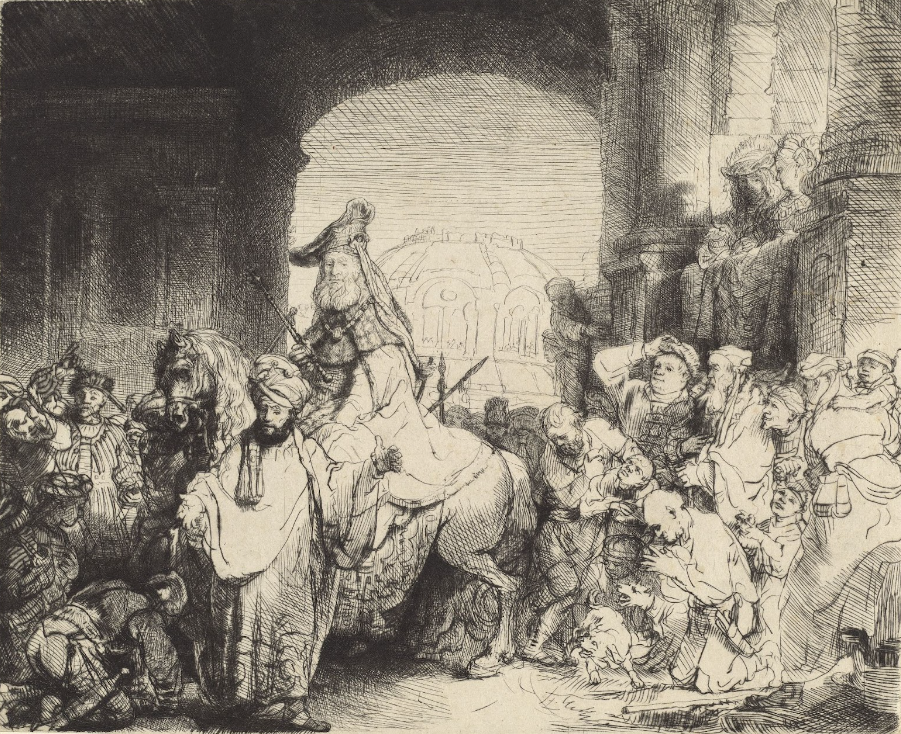Category: Bible
-

Wrestling with 2 Samuel Chapter 21
Several months ago I was speaking with someone (whom I can’t seem to remember!) about difficult passages in scripture. One passage that stuck out as something to spend more time wrestling with was the story in 2 Samuel 21 where David hands over the sons of Saul whom the Gibeonites kill. In this article I…
-

A History of Interpreting Genesis 6:1-4 (Part II)
וַֽיְהִי֙ כִּֽי־הֵחֵ֣ל הָֽאָדָ֔ם לָרֹ֖ב עַל־פְּנֵ֣י הָֽאֲדָמָ֑ה וּבָנ֖וֹת יֻלְּד֥וּ לָהֶֽם׃ וַיִּרְא֤וּ בְנֵי־הָֽאֱלֹהִים֙ אֶת־בְּנ֣וֹת הָֽאָדָ֔ם כִּ֥י טֹבֹ֖ת הֵ֑נָּה וַיִּקְח֤וּ לָהֶם֙ נָשִׁ֔ים מִכֹּ֖ל אֲשֶׁ֥ר בָּחָֽרוּ׃ וַיֹּ֣אמֶר יְהֹוָ֗ה לֹֽא־יָד֨וֹן רוּחִ֤י בָֽאָדָם֙ לְעֹלָ֔ם בְּשַׁגַּ֖ם ה֣וּא בָשָׂ֑ר וְהָי֣וּ יָמָ֔יו מֵאָ֥ה וְעֶשְׂרִ֖ים שָׁנָֽה׃ הַנְּפִלִ֞ים הָי֣וּ בָאָ֘רֶץ֮ בַּיָּמִ֣ים הָהֵם֒ וְגַ֣ם אַֽחֲרֵי־כֵ֗ן אֲשֶׁ֨ר יָבֹ֜אוּ בְּנֵ֤י הָֽאֱלֹהִים֙ אֶל־בְּנ֣וֹת הָֽאָדָ֔ם וְיָלְד֖וּ לָהֶ֑ם הֵ֧מָּה הַגִּבֹּרִ֛ים אֲשֶׁ֥ר מֵעוֹלָ֖ם…
-

A History of Interpreting Genesis 6:1-4 (Part I)
וַֽיְהִי֙ כִּֽי־הֵחֵ֣ל הָֽאָדָ֔ם לָרֹ֖ב עַל־פְּנֵ֣י הָֽאֲדָמָ֑ה וּבָנ֖וֹת יֻלְּד֥וּ לָהֶֽם׃ וַיִּרְא֤וּ בְנֵי־הָֽאֱלֹהִים֙ אֶת־בְּנ֣וֹת הָֽאָדָ֔ם כִּ֥י טֹבֹ֖ת הֵ֑נָּה וַיִּקְח֤וּ לָהֶם֙ נָשִׁ֔ים מִכֹּ֖ל אֲשֶׁ֥ר בָּחָֽרוּ׃ וַיֹּ֣אמֶר יְהֹוָ֗ה לֹֽא־יָד֨וֹן רוּחִ֤י בָֽאָדָם֙ לְעֹלָ֔ם בְּשַׁגַּ֖ם ה֣וּא בָשָׂ֑ר וְהָי֣וּ יָמָ֔יו מֵאָ֥ה וְעֶשְׂרִ֖ים שָׁנָֽה׃ הַנְּפִלִ֞ים הָי֣וּ בָאָ֘רֶץ֮ בַּיָּמִ֣ים הָהֵם֒ וְגַ֣ם אַֽחֲרֵי־כֵ֗ן אֲשֶׁ֨ר יָבֹ֜אוּ בְּנֵ֤י הָֽאֱלֹהִים֙ אֶל־בְּנ֣וֹת הָֽאָדָ֔ם וְיָלְד֖וּ לָהֶ֑ם הֵ֧מָּה הַגִּבֹּרִ֛ים אֲשֶׁ֥ר מֵעוֹלָ֖ם…
-

On Haman and Pettiness
Our Bible study finished Esther this month, and we decided to celebrate it by watching the 2006 film One Night with the King. It was partly well acted and very well-funded but laughably inaccurate and overall rather bad. You know your film is a poor retelling of the biblical story when it’s based on a…
-

Augustine the Evolutionist
[1] For those of you who attended the debate on creationism at the Morning Walk Convention in 2021, you may remember my violation of the debate format by bringing up a quote from Augustine. For those of you who were not there, the debate was a five-person event: two contenders for each side, a representative…
-

If you are not with me…
…you are against me! In that famous scene from Star Wars: Episode III – Revenge of the Sith, Anakin Skywalker stares at Obi-Wan Kenobi with fierce eyes and quotes… Jesus? In an ever-so-subtle slight against Christianity, Star Wars puts a version of Christ’s words in Darth Vader’s mouth when he says, “If you are not…
-

Christianity, the Non-Mystic
I recently had a conversation with fellow theologians, and we came across the topic of magic. It’s certainly one thing to argue for or against arcane elements in works of fiction, but I heard some propose that magic exists in the real world. This sentiment, as lunatic as it may sound to the uninitiated Protestant…
-

The Meaning of the Word “Is”
God is LOVE. . . . . . GOD is Love. . . . . . God IS Love. The first letter of John states that “God is Love” multiple times. Much has been said of agape, the sacrificial love which describes God’s love for us and how we are to love God and one…
-

Christianity of the Third Millennium
I can see the merits of Sola Scriptura. I can see why so many people choose to adopt that ideology. Just as Jesus seemingly condensed the law into two rules, so a summary compilation of the tenets of the faith, the Bible, condenses the work of millennia. It’s easier to read, and, in theory, it’s…










